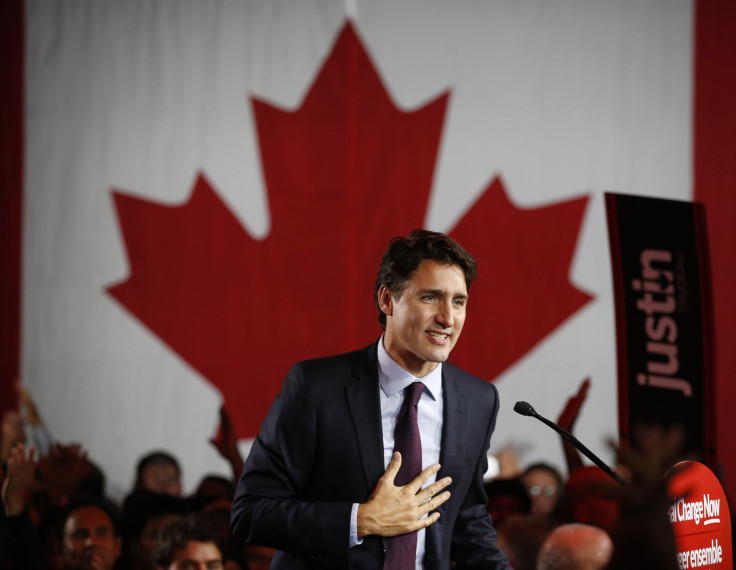
Canada’s Liberal Party won the majority of seats in Monday’s election, meaning that their leader Justin Trudeau is set to be the country’s next Prime Minister. In theory, Canadians vote for local candidates, not the party leader, but Trudeau played an instrumental role in the campaign. Trudeau, 43, articulated the more than 100 Liberal Party policy planks, including a support for multiculturalism, a promise to legalize marijuana and an economic proposal to run a budget deficit in order to stimulate the economy.
The Liberal Party won with 184 of 338 parliamentary seats. Trudeau’s 9-year incumbent Stephen Harper and his Conservative Party won a mere 99 seats, followed by the New Democratic Party (44), Bloc Quebecois (10), and the Green Party (1), according to WBUR.
"We beat cynicism with hard work. We beat negative, divisive politics with a positive vision that brings Canadians together," Trudeau said in his victory speech, according to the CBC.
Just what is “positive vision that brings Canadians together?” Multiculturalism played an important role in Canada’s debate, with Trudeau accusing his opponents of scapegoating immigrants, particularly Muslims. That debate segued into issues of immigration, remittances, religious freedom.
The most visible debate was over the Muslim niqab or veil. Harper wanted to bar women from wearing the religious symbol during citizenship oaths and while serving in public functions. Trudeau promised not to abridge religious rights of Muslims.
As Prime Minister, Trudeau will also try to fulfill his government’s promise to take in 25,000 Syrian refugees, more than double what the Conservatives has slated for 2016. He also pledged to extend health benefits to refugees.
For immigrants already in the country, Trudeau’s Liberal party has promised a number of reforms. First, it pledged to improve and reform the family unification system.
“A Liberal government will immediately double the number of applications allowing for parents and grandparents,” Trudeau said in a speech in September. “Second, we will double the budget for family applications. Wait times will come down.”
Second, Canadian immigrants expect Trudeau to follow through on pledge to reduce remittance costs, something that his Conservative opponents also promised. ACORN Canada has proposed a 5 percent cap on remittance fees.
Marijuana
Trudeau and the Liberal Party have pledged to legalize marijuana across Canada. Exactly how Trudeau would end marijuana prohibition in Canada is unclear, and there’s a lot of policy work and planning to do before the proposal is executed.
“We don’t yet know exactly what rate we’re going to be taxing it, how we’re going to control it, or whether it will happen in the first months, within the first year, or whether it’s going to take a year or two to kick in,” Trudeau said, according to the National Post.
The last Liberal effort to legalize marijuana, in 2003 was widely criticized by the U.S. government. Yet Canada’s southern neighbor has legalized weed since 2003 in four states and decriminalized it in other jurisdictions. Opposition, if any, will come in weak doses.
Uruguay has already legalized marijuana. Brazilian courts are considering decriminalizing cannabis and other drugs. Colombian leaders have voiced support for drug legalization in recent years.
© 2024 Latin Times. All rights reserved. Do not reproduce without permission.




